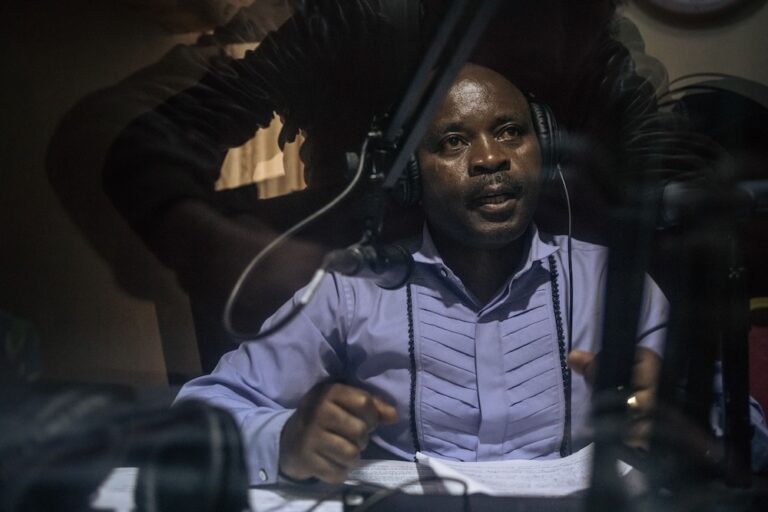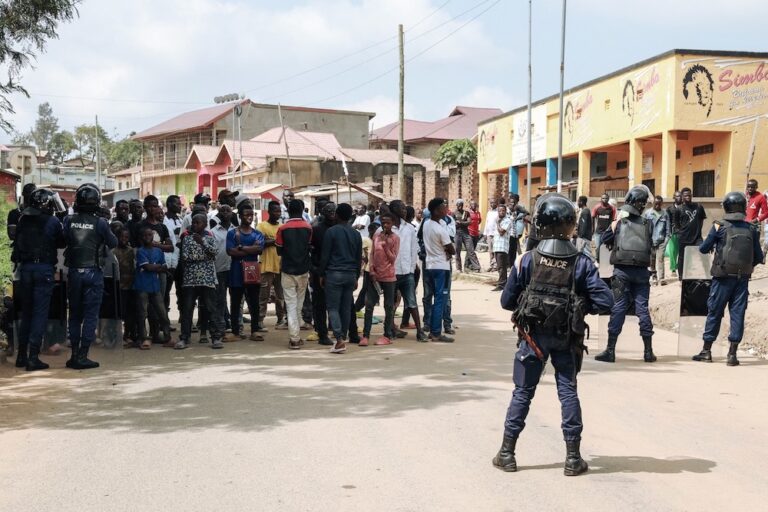As the elections draw closer, the media freedom environment is deteriorating with violence against journalists on the increase.
This statement was originally published on rsf.org on 21 August 2023.
Reporters Without Borders (RSF) is concerned about attacks on journalists covering the run-up to the general elections in the Democratic Republic of Congo in December, and calls on the authorities and politicians to take immediate measures to protect the media’s work, which is essential to the democratic process.
At least seven journalists have been harassed or attacked by political actors of all sides in the capital, Kinshasa, and the central city of Kananga since the start of July. And one journalist is the target of a criminal defamation case brought by a politician. Journalists’ safety is clearly under threat from the tensions that are being fuelled by the elections scheduled for 20 December, in which Félix Tshisekedi, the DRC’s president since 2019, is seeking another term.
“Every day in the DRC brings its share of violence against journalists. It has become very worrying, especially as some of the attacks are the work of politicians or their supporters. With four months to go to the elections, politicians must respect the crucial role of the media. To help deter and prevent any type of attack against journalists, RSF calls on the authorities to issue and widely publicise a statement to all candidates and parties in the running, as well as to the security forces, reminding them that the media and journalists are essential to the democratic process and that anyone who threatens their safety or interferes with their right to inform and the public’s right to be informed will have to face the full force of the law.”
Sadibou Marong, Director of RSF’s sub-Saharan Africa bureau
At Kananga airport on 29 July, individuals on motorcycles threw stones at a vehicle carrying journalists, including Congo Web TV’s Trésor Kalafayi, the Forum des As newspaper’s Didier Kebongo and privately-owned Canal Kin TV’s Danou Kefula, as well as Elysée Odia, a reporter for the Yabisonews.cd news site and Jean Pierre Kayembe of Non à la Balkanisation TV.
These reporters had gone to the airport to cover the arrival of parliamentary representative and Envol party leader Delly Sesanga, who is a presidential candidate and who was due to hold a rally in the city. Kebongo told RSF that the men on motorcycles were said to be rivals of Sesanga and that they threw stones at the reporters to prevent them from taking photos of him.
“They deliberately chose our vehicle, which was labelled ‘press’ and some of us were injured,” Kebongo said. “It was only by luck that the police were able to get us out there.”
The government condemned the attack and promised to investigate it, but it was far from being isolated. Actu7.cd news site reporter Frank Kalonji was attacked the same day in Kinshasa by members of Martin Fayulu’s opposition party Ecide, who snatched his phone and accused him of being “a spy for the ruling party.”
Liberteactu.cd news site director Doux-Jésus Beledu was assaulted in the capital at the start of July by a group of individuals believed to be opposition supporters. He said they surrounded him after recognising him. “Then they began threatening me, calling me a pro-government journalist, and one of them threw a metal object that hit me on the head.”
Defamation case
A criminal defamation prosecution is also being brought against a journalist during the run-up to the elections. Pascal Kamanzi faces a possible five-year prison sentence and a fine if convicted in the eastern city of Bukavu on 24 August of defaming Mushi Bonane, a well-known local politician.
Bonane did not appreciate the live political debate that Kamanzi moderated on Radio FAN FM in April, in which a political rival criticised Bonane. Complying with the law, the radio station offered Bonane the opportunity to respond to the criticism on the air, but he refused, suing instead. RSF calls on the judicial authorities to dismiss all the charges against Kamanzi.



